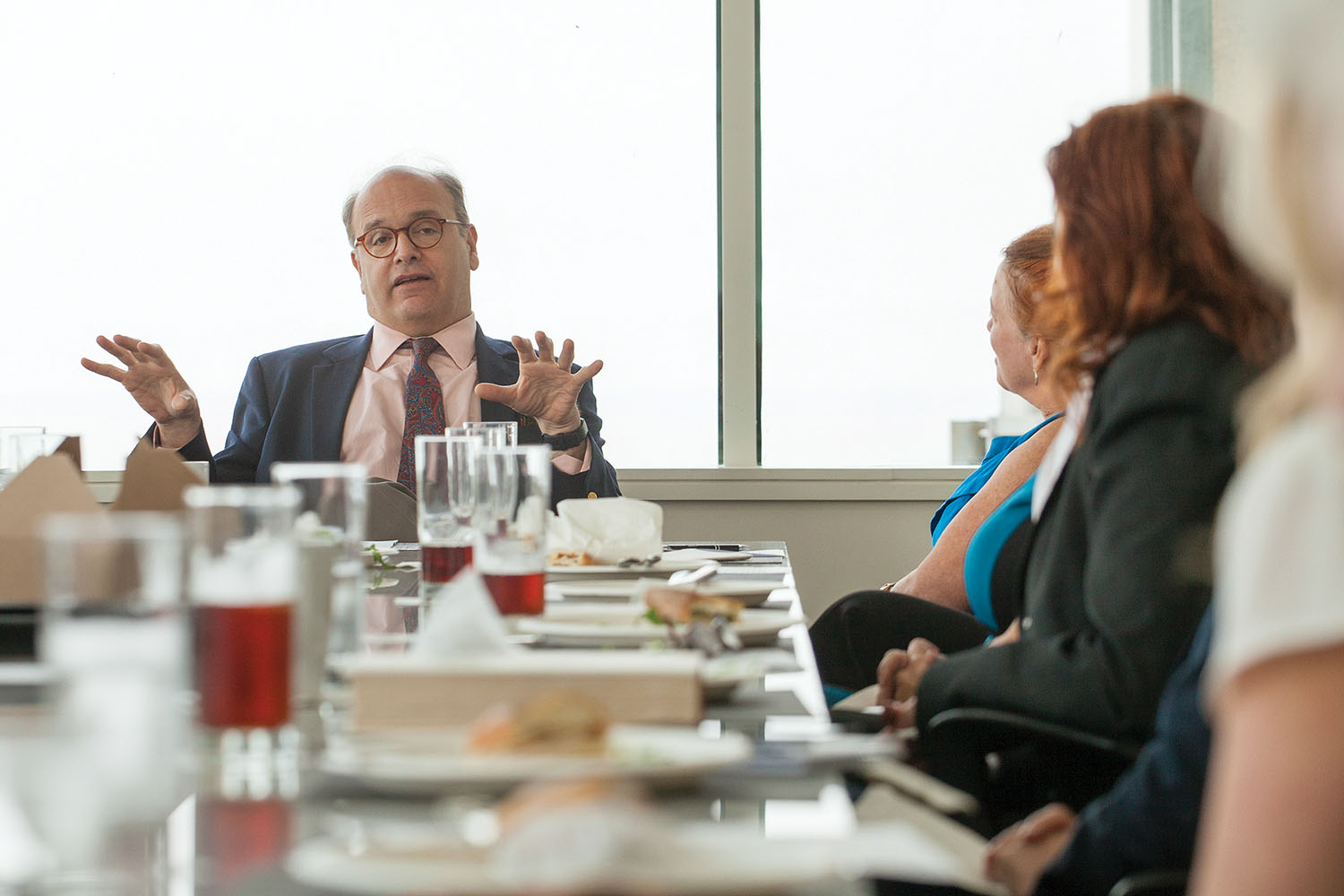The New Orleans chapter of Women’s International Shipping & Trading Association (WISTA) hosted a lunch & learn March 12 at the Jones Walker Law Firm in downtown New Orleans that featured renowned maritime historian Lincoln Paine.
Paine discussed his 2013 epic book titled, “The Sea and Civilization: A Maritime History of the World.” Paine’s discussion mirrored the maxim from his website: All history is maritime history.
To illustrate the impact of globalism, and specifically maritime trade, Paine pointed to McDonald’s popular Big Mac sandwich. Paine said that none of the components of the Big Mac comes from North America.
“You only get to the Americas if you throw in ketchup,” said Paine, adding that the McDonald’s ketchup comes from South America.
Paine added that even “the cloud” is tied to maritime trade. The exchange of information over the internet is made possible, not through an intangible “cloud,” Paine said, but rather through cables that crisscross the ocean floor.
“And those cables actually follow old steamship routes,” he said.
Looking out at the landscape surrounding Jones Walker’s 52nd floor offices, Paine said even the very existence of New Orleans would’ve never happened without maritime trade.
“Without globalization, there would be no New Orleans,” he said.
As part of his talk, Paine addressed the radical changes brought on by containerization of cargoes—changes for good and bad. While containers have greatly sped up the movement of goods, Paine said that’s had the consequence of putting a huge number of trucks on the road, in essence passing on inefficiencies to other modes of transportation.
Also looking at the Lower Mississippi River, Paine mentioned the Old River Control Structure and Morganza Spillway, located upriver of Baton Rouge, La. Old River maintains the flow of the Mississippi River by preventing it from changing course to the Atchafalaya River, while Morganza is used in extreme high water periods to divert a portion of the river to the Morganza Floodway. A change of course at Old River or Morganza, an event long feared, would be disastrous, Paine said.
“It would change the country,” he said. “It would change the world. And we would not come out on top.”
About 20 WISTA members attended the lunch and learn event. While Paine was in South Louisiana, he drove up to see Morganza and Old River, toured Associated Terminals’ base of operations in St. Bernard Parish, and viewed the Mississippi River from aboard a Turn Services crew boat.
Caption for photo: Lincoln Paine, author of “The Sea and Civilization: A Maritime History of the World,” speaks at WISTA luncheon March 12 in New Orleans. (Photo by Frank McCormack)




